
A powerful, spiritual and warmly dynamic album of international and cross-cultural free improvisation meticulously recorded live at Jazzfest Berlin in 2022 from the trio of German reedist Peter Brötzmann on tenor saxophone and clarinet, Chicago drummer/percussionist Hamid Drake, and Moroccan guembri player and vocalist Majid Bekkas.
In Stock
Quantity in Basket: None
Log In to use our Wish List
Shipping Weight: 3.00 units
EU & UK Customers:
Discogs.com can handle your VAT payments
So please order through Discogs
Sample The Album:
Peter Brotzmann-tenor saxophone, clarinet
Majid Bekkas-Guembri, voice
Hamid Drake-drums, percussion
Click an artist name above to see in-stock items for that artist.
liner notes by Howard Mandel (English) and Roland Spiegel (German).
UPC: 614427997029
Label: ACT Music + Vision
Catalog ID: ACT9970-2
Squidco Product Code: 33745
Format: CD
Condition: New
Released: 2023
Country: Germany
Packaging: Digipack - 3 panel
Recorded live at Berliner Festspiele / Jazzfest Berlin, at the Haus der Berliner Festspiele, in Berlin, Germany, on April 11th, 2022, by Benjamin Ihnow.
"Free expression and Gnaouan blues: A historic concert by iconic reedist Peter Brotzmann, Moroccan Gnaoua adept Majid Bekkas and drummer Hamid Drake.
Catching Ghosts by revered, iconoclastic 81-year-old reedist Peter Brotzmann with Moroccan Gnaoua adept Majid Bekkas playing two-stringed, camelskin-backed guembre and Chicago-bred drummer Hamid Drake, proves that "free" spontaneous interactions deriving power from age-old traditions can transcend cultural lines. Improvising on incantations from Gnaoua liturgy, Brotzmann's horn cries as summons and statement; Drake's drums awaken inner impulses; Bekkas' strings, plucked and strummed, tie it all together, and his voice brings the song home. But this is no lucky success: The music is vital due to its players' career-long practice, their knowledge of heritage, and belief the past must always be reinterpreted, renewed.
American jazz giants have jammed with Gnaouans, but for Brotzmann, Europe's exemplar of unfettered blowing, to grapple with such material is to hear a new synthesis. "My approach is get in and disturb these themes, so other things happen," he explains. "I'm not thinking about scales or harmonies. I follow Bekkas, and when he changes, I do something against it to make the music interesting to me. The dialectic is a good way to make something new, out of tension. I need that in any sort of playing."
Bekkas aligns himself with Brotzmann, championing the revival of Gnaouan culture, which originates in the uneasy history of freed Black slaves integrating with Moroccan Islamic society. The music relates to American blues, as Bekkas knows. Drake orchestrates the open format, making drama from grooves so each track of Catching Ghosts tells its own story, signifying meaning though it be pre-linguistic.
That suits Brotzmann's adjustment of his signature style. "I don't have to play all high energy anymore," says the German who shook up the jazz world in 1968 with his album "Machine Gun". "Now I'm more interest in dynamics and sound." Those tangible qualities universalize the challenge of Catching Ghosts.-ACT Music + Vision
liner notes by Howard Mandel (English) and Roland Spiegel (German).
Artist Biographies
• Show Bio for Peter Brotzmann "Born Remscheid, Germany on 6 March 1941; soprano, alto, tenor, baritone and bass saxophones, a-clarinet, e-flat clarinet; bass clarinet, tarogato. Peter Brötzmann's early interest was in painting and he attended the art academy in Wuppertal. Being very dissatisfied with the gallery/exhibition situation in art he found greater satisfaction playing with semi-professional musicians, though continued to paint (as well as retaining a level of control over his own records, particularly in record sleeve/CD booklet design). In late 2005 he had a major retrospective exhibition jointly with Han Bennink - two separate buildings separated by an inter-connecting glass corridor - in Brötzmann's home town of Remscheid. Self-taught on clarinets, he soon moved to saxophones and began playing swing/bebop, before meeting Peter Kowald. During 1962/63 Brötzmann, Kowald and various drummers played regularly - Mingus, Ornette Coleman, etc. - while experiencing freedoms from a different perspective via Stockhausen, Nam June Paik, David Tudor and John Cage. In the mid 1960s, he played with American musicians such as Don Cherry and Steve Lacy and, following a sojourn in Paris with Don Cherry, returned to Germany for his unorthodox approach to be accepted by local musicians like Alex von Schlippenbach and Manfred Schoof. The trio of Peter Brötzmann, Peter Kowald and Sven-Ake Johansson began playing in 1965/66 and it was a combination of this and the Schoof/Schlippenbach Quintet that gave rise to the first Globe Unity Orchestra. Following the self-production of his first two LPs, For Adolphe Sax and Machine gun for his private label, BRÖ, a recording for Manfred Eicher's 'Jazz by Post' (JAPO) [Nipples], and a number of concert recordings with different sized groups, Brötzmann worked with Jost Gebers and started the FMP label. He also began to work more regularly with Dutch musicians, forming a trio briefly with Willem Breuker and Han Bennink before the long-lasting group with Han Bennink and Fred Van Hove. As a trio, and augmented with other musicians who could stand the pace (e.g. Albert Mangelsdorff on, for example, The Berlin concert), this lasted until the mid-1970s though Brötzmann and Bennink continued to play and record as a duo, and in other combinations, after this time. A group with Harry Miller and Louis Moholo continued the trio format though was cut short by Miller's early death. The thirty-plus years of playing and recording free jazz and improvised music have produced, even on just recorded evidence, a list of associates and one-off combinations that include just about all the major figures in this genre: Derek Bailey (including performances with Company (e.g. Incus 51), Cecil Taylor, Fred Hopkins, Rashied Ali, Evan Parker, Keiji Haino, Misha Mengelberg, Anthony Braxton, Marilyn Crispell, Andrew Cyrille, Phil Minton, Alfred 23 Harth, Tony Oxley. Always characterised as an energy player - and the power-rock setting of Last Exit with Ronald Shannon Jackson, Sonny Sharock and Bill Laswell, or his duo performances with his son, Casper, did little to disperse this conviction - his sound is one of the most distinctive, life-affirming and joyous in all music. But the variety of Brötzmann's playing and projects is less recognised: his range of solo performances; his medium-to-large groups and, in spite of much ad hoc work, a stability brought about from a corpus of like- minded musicians: the group Ruf der Heimat; pianist Borah Bergman; percussionist Hamid Drake; and Die like a dog, his continuing tribute to Albert Ayler, with Drake, William Parker and Toshinori Kondo. Peter Brötzmann continues a heavy touring schedule which, since 1996 has seen annual visits to Japan and semi-annual visits to the thriving Chicago scene where he has played in various combinations from solo through duo (including one, in 1997, with Mats Gustafsson) to large groups such as the Chicago Octet/Tentet, described below. He has also released a number of CDs on the Chicago-based Okka Disk label, including the excellent trio with Hamid Drake and the Moroccan Mahmoud Gania, at times sounding like some distant muezzin calling the faithful to become lost in the rhythm and power of the music. The "Chicago Tentet" was first organized by Brötzmann with the assistance of writer/presenter John Corbett in January 1997 as an idea for a one-time octet performance that included Hamid Drake and Michael Zerang (drums), Kent Kessler (bass) and Fred Lomberg-Holm (cello), Ken Vandermark and Mars Williams (reeds), and Jeb Bishop (trombone). The first meeting was extremely strong and warranted making the group an ongoing concern and in September of that same year the band was expanded to include Mats Gustafsson (reeds) and Joe McPhee (brass) as permanent members (with guest appearances by William Parker (bass), Toshinori Kondo (trumpet/electronics), and Roy Campbell (trumpet) during its tenure) - all in all a veritable who's who of the contemporary improvising scene's cutting edge. Though the Tentet is clearly led by Brötzmann and guided by his aesthetics, he has been committed to utilizing the compositions of other members in the ensemble since the beginning. This has allowed the band to explore an large range of structural and improvising tactics: from the conductions of Mats Gustafsson and Fred Lonberg-Holm, to the vamp pieces of Michael Zerang and Hamid Drake, to compositions using conventional notation by Ken Vandermark and Mars Williams, to Brötzmann's graphic scores - the group employs almost every contemporary approach to composing for an improvising unit. This diversity in compositional style, plus the variety in individualistic approaches to improvisation, allows the Tentet to play extremely multifaceted music. As the band moves from piece to piece, it explores intensities that range from spare introspection to all out walls of sound, and rhythms that are open or free from a steady pulse to those of a heavy hitting groove. It is clear that the difficult economics of running a large band hasn't prevented the group from continuing to work together since its first meeting. Through their effort they've been able to develop an ensemble sound and depth of communication hard to find in a band of any size or style currently playing on the contemporary music scene." ^ Hide Bio for Peter Brotzmann • Show Bio for Majid Bekkas "Majid Bekkas (Arabic: مجيد بقاس, born 1957), also known as Abdelmajid Bekkas, is a Moroccan musician on guembri, oud, guitar and vocals, who is internationally known for his contributions to World music and Ethno jazz with North African roots. His album Magic Spirit Quartet, with young Scandinavian musicians and produced by the jazz label ACT Music in 2020, was a considerable success, with appreciations in the international press, such as in the BBC Musical Magazine 7 and the American Downbeat magazine, where the disc was selected as Editor's choice of February 2020In his youth, Bekkas played banjo in Moroccan groups in the style of Nass El Ghiwane. From 1975, he studied classical guitar at the Conservatory for Music and Dance in Rabat. Later, he was initiated into the tradition of Gnawa music by maâlem (master musician) Ba Houmane, and the guembri, a bass lute characteristic of this African spiritual music style, became his main instrument. In 1990, he founded the Gnaoua Blues Band, playing a fusion of Afro-American blues and Gnawa music. In the following years, he started to incorporate elements of jazz fusion into his own music and played with numerous international jazz musicians. (Among others, with Louis Sclavis, Archie Shepp, Randy Weston, Klaus Doldinger, Joachim Kühn, Peter Brötzmann or Hamid Drake). Since 1996, Bekkas has been artistic co-director of the festival Jazz au Chellah in Rabat. Outside of Morocco, Bekkas performed at international festivals such as WOMEX Seville 2003 in Spain, Africa Festival Würzburg 2015 or at the Berlin Jazz Festival in Germany as soloist, in trio formations and in other world music projects. In 2002, Spanish percussionist Ramón López invited him to work on his tribute album for Roland Kirk. In 2006, Bekkas joined a jazz fusion trio with Joachim Kühn and Ramón López, that released its fifth album on ACT Music in August 2013. With Klaus Doldinger and his jazz band Passport, Bekkas first went on stage in Morocco in 2006, and was invited later to join this group for concerts in Germany. His album Magic Spirit Quartet, with young Scandinavian musicians and produced by ACT Music in 2020, was a considerable success, with appreciations in the international press, such as in the BBC Music Magazine, Jazz Journal and DownBeat magazine. In October 2022, Bekkas and his band toured in the U.S., with concerts in Los Angeles, New Orleans and other cities. Bekkas' song Daymallah is the opening track on the album Desert Blues 2, which was voted the Best Compilation of 2002 by leading music journalists and producers for fRoots magazine. In 2004, he received the European jazz award Django d'Or for his album Mogador. The album Passport to Morocco by German jazz musician Klaus Doldinger's band Passport, in which he participated as guest musician and composer, received a German Jazz Award in 2009. In 2010, Bekkas was awarded the Al Farabi Prize by the Comité National de la Musique in Morocco for his contribution to Moroccan music. In 2015, he received the award of the Académie Charles-Cros in France for his album Al Qantara., and in February 2020, his album Magic Spirit Quartet was selected by DownBeat magazine as 'Editor's Choice'." ^ Hide Bio for Majid Bekkas • Show Bio for Hamid Drake "Hamid Drake (born August 3, 1955) is an American jazz drummer and percussionist. He lives in Chicago, IL but spends a great deal of time touring worldwide. By the close of the 1990s, Hamid Drake was widely regarded as one of the best percussionists in jazz and avant improvised music. Incorporating Afro-Cuban, Indian, and African percussion instruments and influence, in addition to using the standard trap set, Drake has collaborated extensively with top free-jazz improvisers. Drake also has performed world music; by the late 70s, he was a member of Foday Musa Suso's Mandingo Griot Society and has played reggae throughout his career. Drake has worked with trumpeter Don Cherry, pianist Herbie Hancock, saxophonists Pharoah Sanders, Fred Anderson, Archie Shepp and David Murray and bassists Reggie Workman and William Parker (in a large number of lineups) He studied drums extensively, including eastern and Caribbean styles. He frequently plays without sticks; using his hands to develop subtle commanding undertones. His tabla playing is notable for his subtlety and flair. Drake's questing nature and his interest in Caribbean percussion led to a deep involvement with reggae." ^ Hide Bio for Hamid Drake
10/30/2024
Have a better biography or biography source? Please Contact Us so that we can update this biography.
10/30/2024
Have a better biography or biography source? Please Contact Us so that we can update this biography.
10/30/2024
Have a better biography or biography source? Please Contact Us so that we can update this biography.
Track Listing:
1. Chalaba 16:09
2. Mawama 7:12
3. Hamdouchia 14:02
4. Balini 5:32
Improvised Music
Jazz
Free Improvisation
European Improvisation, Composition and Experimental Forms
Trio Recordings
Peter Brotzmann
Unusual Vocal Forms
Song Based Music
Staff Picks & Recommended Items
Recent Releases and Best Sellers
Search for other titles on the label:
ACT Music + Vision.


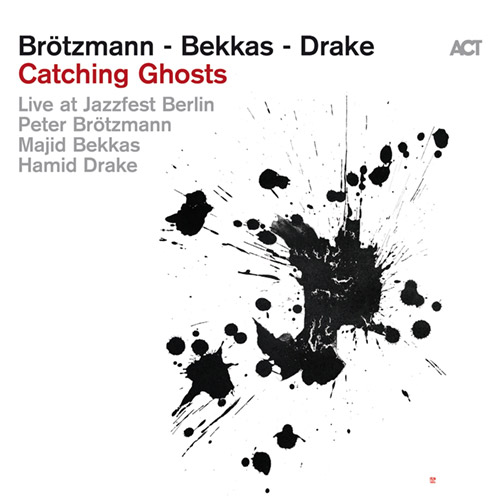
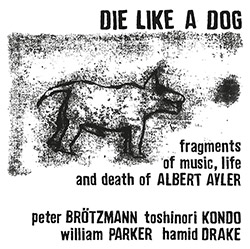
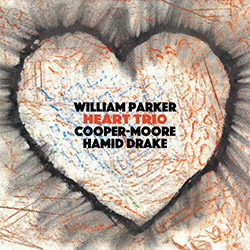
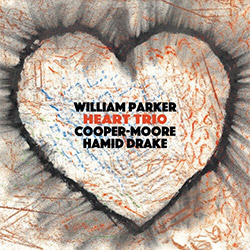
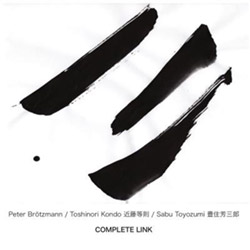
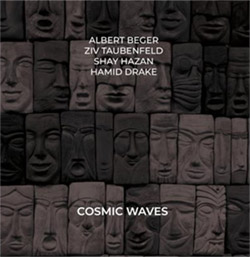


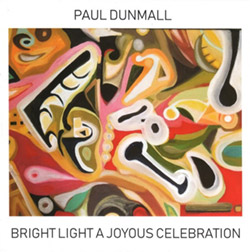
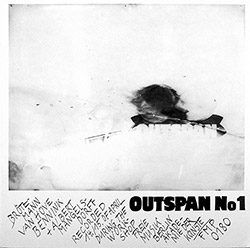
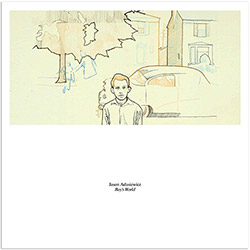
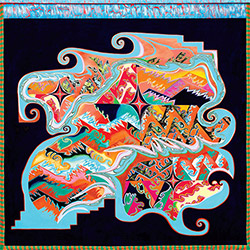
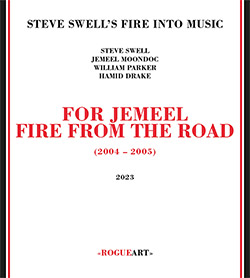


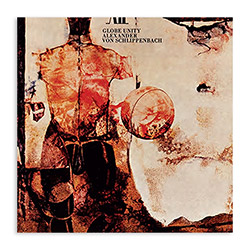
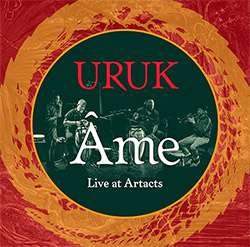


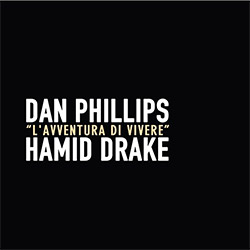

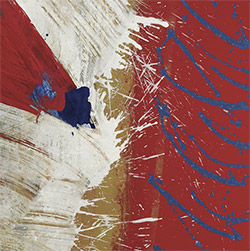
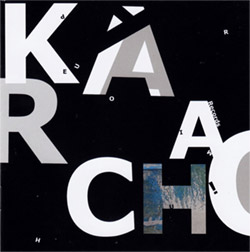
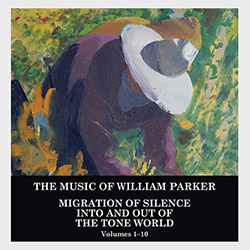
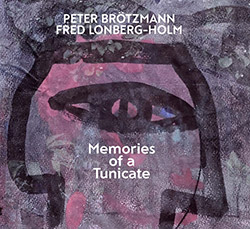
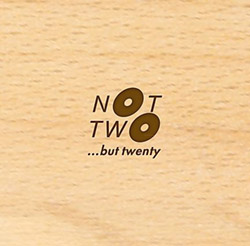
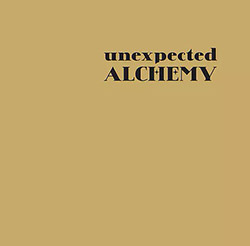








![Musicworks Magazine: #149 Fall 2024 [MAGAZINE + CD]](https://www.teuthida.com/productImages/misc4/35470.jpg)

![Nevai, Nandor: <<The PRICE of FRONTIER>> Book 1: FULK [BOOK + 4 CDs]](https://www.teuthida.com/productImages/misc4/35464.jpg)
![Nevai, Nandor: <<The PRICE of FRONTIER>> Book 2: MARTIAL [BOOK + 4 CDs]](https://www.teuthida.com/productImages/misc4/35465.jpg)
![Nevai, Nandor: <<The PRICE of FRONTIER>> Book 3: JASSOM [BOOK + 4 CDs]](https://www.teuthida.com/productImages/misc4/35466.jpg)
![Nevai, Nandor: <<The PRICE of FRONTIER>> Book 4: HARD-WON [BOOK + 4 CDs]](https://www.teuthida.com/productImages/misc4/35467.jpg)



![Elephant9 with Terje Rypdal: Catching Fire [VINYL 2 LPs]](https://www.teuthida.com/productImages/misc4/35355.jpg)
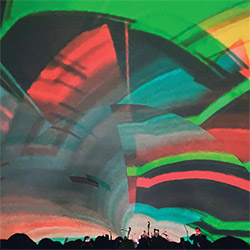
![Mazurek, Rob & Exploding Star Orchestra: Live at Adler Planetarium [VINYL]](https://www.teuthida.com/productImages/misc4/35233.jpg)
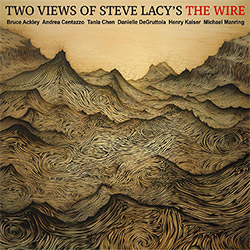
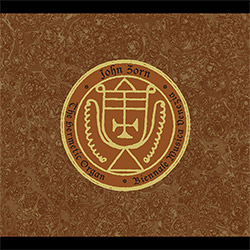
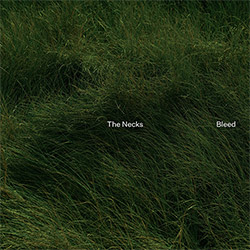
![Necks, The: Bleed [VINYL BLACK]](https://www.teuthida.com/productImages/misc4/35250.jpg)
![Necks, The: Bleed [VINYL GREEN + DOWNLOAD]](https://www.teuthida.com/productImages/misc4/35251.jpg)
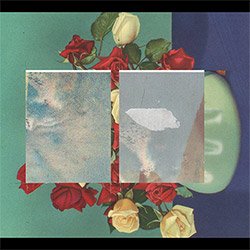



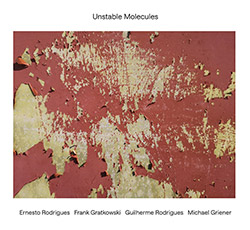
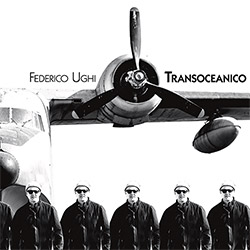
![Attias, Michael (Attias / Leibson / Pavolka / Ferber / Hoffman): Quartet Music Vol. I: LuMiSong [VINYL]](https://www.teuthida.com/productImages/misc4/34878.jpg)
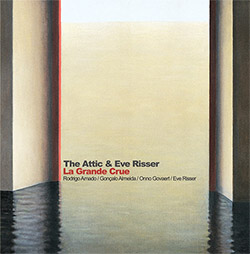
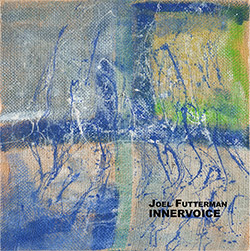

![Cunningham, Alex / Eli Wallace : The Terrible Habit Of Theatre [VINYL]](https://www.teuthida.com/productImages/misc4/35351.jpg)
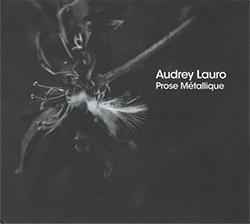
![Hoffman, Christopher (feat. Henry Threadgill / Anna Webber): Vision Is The Identity [VINYL]](https://www.teuthida.com/productImages/misc4/34877.jpg)

![Gregg, J.J. / Pavan Kanekal: Ease & Flow [CD + DOWNLOAD]](https://www.teuthida.com/productImages/misc4/35335.jpg)
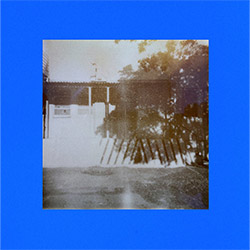
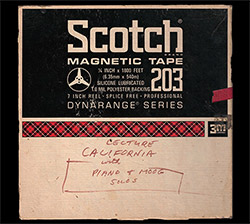
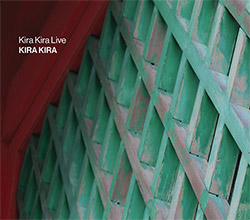
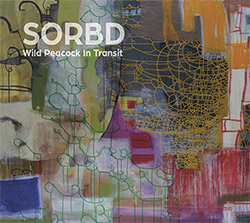
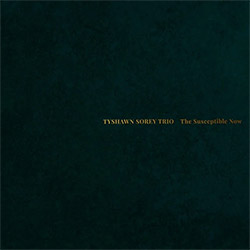



![DNS: Taking Big Bites Of The Khandas Three Cafes Deep [2 CDs]](https://www.teuthida.com/productImages/misc4/35334.jpg)




![Cleaver, Gerald: The Process [VINYL]](https://www.teuthida.com/productImages/misc4/34966.jpg)




![Alva Noto: HYbr:ID II [VINYL 2 LPs]](https://www.teuthida.com/productImages/misc4/35201.jpg)

![Baron, Derek / Luke Martin: Distinct and Concealed [CASSETTE + DOWNLOAD]](https://www.teuthida.com/productImages/misc4/35079.jpg)

![Lyle, Erica Dawn : Colonial Motels [CASSETTE + DOWNLOAD]](https://www.teuthida.com/productImages/misc4/35080.jpg)







![Alva Noto: HYbr:ID III [VINYL 2 LPs]](https://www.teuthida.com/productImages/misc4/35011.jpg)
![Kubisch, Christina / Trondheim Voices: Stromsanger 2022 For Six Voices And Electromagnetic Waves [VINYL]](https://www.teuthida.com/productImages/misc4/34628.jpg)
![Ristic, Manja / Joana Guerra / Veronica Cerrotta: Slani pejzazi [CASSETTE + DOWNLOAD]](https://www.teuthida.com/productImages/misc4/34928.jpg)
![Euro Herc: Segnali [CASSETTE + DOWNLOAD]](https://www.teuthida.com/productImages/misc4/34929.jpg)







![Zurria, Manuel: Fame di Vento [3 CDs]](https://www.teuthida.com/productImages/misc4/35167.jpg)

![Granberg, Magnus / Nattens Inbrott / Skogen: Holde Traume, Kehret Wieder! [2 CDs]](https://www.teuthida.com/productImages/misc4/35038.jpg)
![Frey, Jurg: Outermost Melodie [2 CDs]](https://www.teuthida.com/productImages/misc4/35039.jpg)

![Pavone, Jessica: Reverse Bloom [VINYL]](https://www.teuthida.com/productImages/misc4/34895.jpg)




![Modney (Modney / Wooley / Gentile / Roberts / Pluta / Symthe / ...): Ascending Primes [2 CDs]](https://www.teuthida.com/productImages/misc4/34852.jpg)






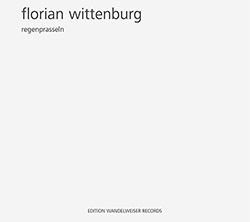

![Kirschner, Kenneth / Joseph Branciforte: From the Machine: Volume 1 [VINYL]](https://www.teuthida.com/productImages/misc4/30767.jpg)
![Golub, Phillip: Filters [VINYL + DOWNLOAD]](https://www.teuthida.com/productImages/misc4/32379.jpg)
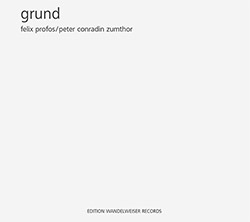

![Deerlady (Obomsawin, Mali / Magdalena Abrego): Greatest Hits [VINYL]](https://www.teuthida.com/productImages/misc4/34876.jpg)




![Haino, Keiji: Black Blues [2 CDs]](https://www.teuthida.com/productImages/misc4/35109.jpg)



![Surplus 1980: Illusion of Consistency [CD]](https://www.teuthida.com/productImages/misc4/35069.jpg)
![Staiano, Moe: Away Towards the Light [VINYL + DOWNLOAD]](https://www.teuthida.com/productImages/misc4/35037.jpg)




![Caveira (Gomes / Sousa / Abras / Ferrandini): Ficar Vivo [VINYL]](https://www.teuthida.com/productImages/misc4/34643.jpg)
![Gregg, J. J. / David Van Auken: Lunar Prairie [CD w/ DOWNLOAD]](https://www.teuthida.com/productImages/misc4/34611.jpg)

![Coultrain: Mundus [VINYL]](https://www.teuthida.com/productImages/misc4/32439.jpg)
![Mattin: Songbook #6 [VINYL]](https://www.teuthida.com/productImages/misc4/27317.jpg)
![Punkappella: Wake Up [7-inch VINYL]](https://www.teuthida.com/productImages/misc4/17519.jpg)
![Residents, The: WARNING: UNiNC.: Live And Experimental Recordings 1971-1972 [VINYL 2 LPs]](https://www.teuthida.com/productImages/misc4/31521.jpg)
![Coultrain: Phantasmagoria [VINYL]](https://www.teuthida.com/productImages/misc4/30142.jpg)
![Lennon, Sean Ono: Asterisms [VINYL]](https://www.teuthida.com/productImages/misc4/34517.jpg)

![Rotem Geffen: The Night Is The Night [VINYL]](https://www.teuthida.com/productImages/misc4/34631.jpg)

![Coley, Byron: Dating Tips for Touring Bands [VINYL]](https://www.teuthida.com/productImages/misc4/17906.jpg)

![Lost Kisses: My Life is Sad & Funny [DVD]](https://www.teuthida.com/productImages/misc4/lostKissesDVD.jpg)